-
•
•
32 responses

I should probably be responding to General Conference, given the timing and what I’ve been reading recently. And I still plan to respond to a couple of Conference issues. But the many recent news stories about Jobs has got me thinking about that instead. As I’ve pondered Jobs I think there is an important distinction that we are missing. Read More
-
•
•
13 responses
The first principles and ordinances in my life, borne of my experiences and observations, are these: Exposure, which leads to awareness, or, in other words, the knowledge of good and evil Awareness, which leads to gratitude and wonder Wonder, which leads to vision and discipline Discipline, which leads to understanding and becoming Understanding, which leads to humility and perspective Becoming and perspective, which lead to joy, which is sustainable happiness Sustainable happiness, which is the purpose of life They aren’t as concise as the 4th Article of Faith, but they work for me. Also, they are a work in progress.… Read More
-
•
•
67 responses
In his recent conference address, Elder Ballard emphasized that we must avoid the name “Mormon Church” and instead use as much as possible the official, full name of the Church. His message stems from two concerns: (1) the missing association with the name “Jesus Christ”, hence no immediate recognition of the Church as Christian. (2) the potential confusion with other groups, in particular polygamist groups, that are referred to as “Mormon.” Read More
-
•
•
89 responses
“We have noticed an unfortunate trend in church attendance. Despite thirty-plus years of formal equality, African-American members are still severely underrepresented in church attendance in the United States. In contrast, white church members are highly overrepresented. This may be because of differences in innate spirituality between the demographic groups. Or, it may be due to social forces. Regardless, it is a problem which must be addressed. Starting immediately and until further notice, all Priesthood leadership in the United States at the ward, stake, and general level will be drawn solely from African-American church members. This will provide additional incentive for… Read More
-
•
•
12 responses

On Sunday, as we luxuriated in General Conference (however we followed it), we missed an annual tradition: Pulpit Freedom Sunday.[fn1] A quick background on Pulpit Freedom Sunday: on July 2, 1954, Lyndon Johnson proposed that Section 501(c)(3) (the Internal Revenue Code section that exempts, among other things, churches, universities, and the NCAA from tax) be amended to prevent exempt organizations from campaigning on behalf of or against candidates for office. [fn2] There’s no legislative history, and, in fact, no record of the voice vote on the amendment. But it passed. Note, though, that the prohibition wasn’t particularly aimed at churches; in… Read More
-
•
•
109 responses
Mormons do care about the earth. We care about preserving, protecting, and maintaining it. We care about the earth because 1) We love God, 2) We care about other people, and 3) We believe in the intrinsic value of the earth. Read More
-
•
•
36 responses
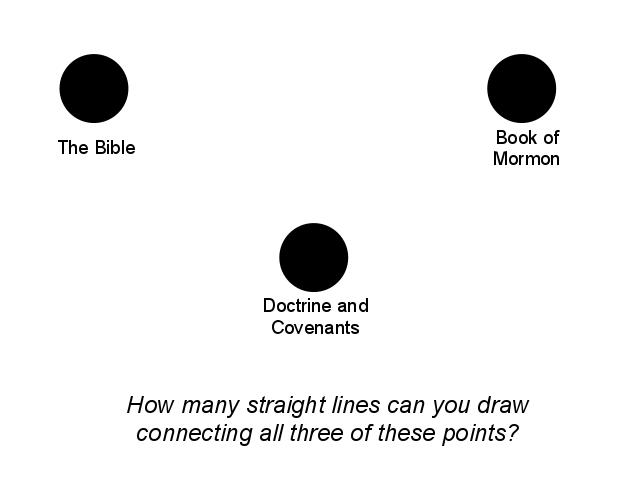
Elder Perry’s Saturday conference address focused on how we present ourselves and how we are perceived by others. Religious affiliation affects how we perceive others. For example, when I lived in Oregon it wasn’t uncommon to see the little “Christian fish” on business storefronts. (I see this occasionally in California, but not nearly so frequently.) At first, this was a value-neutral statement in my mind. I was just as happy to frequent a business as a non- business. However, my experiences with the businesses were subpar, and I came to associate the as indicating, “We’re not as good as the… Read More
-
•
•
78 responses
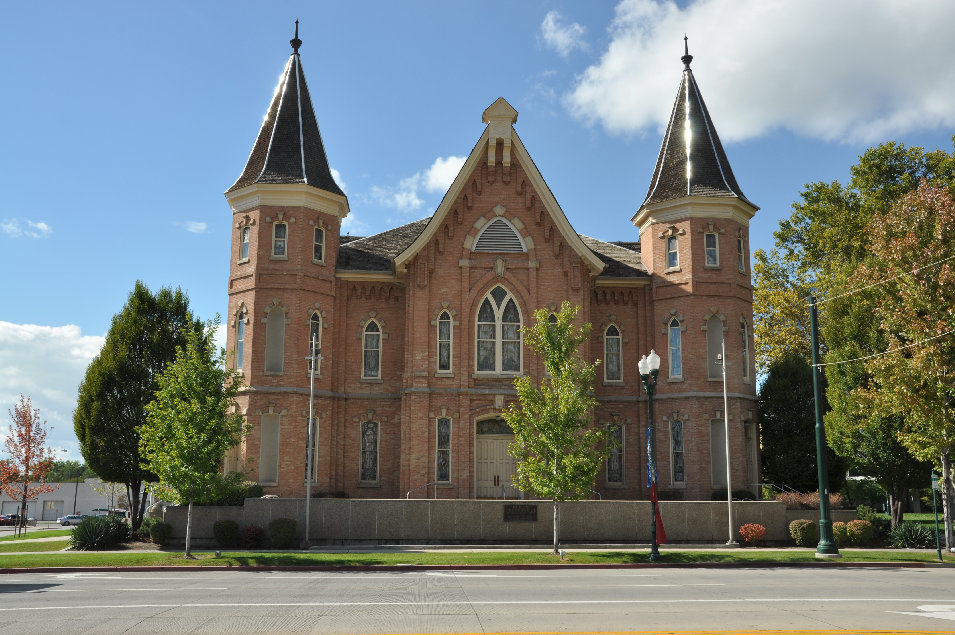
With the announcement today that the Provo Tabernacle will be reconstructed and made into a Temple, I wondered what its official name will be? Or in other words, how will its name be different from the other Provo Utah Temple? Read More
-
•
•
81 responses
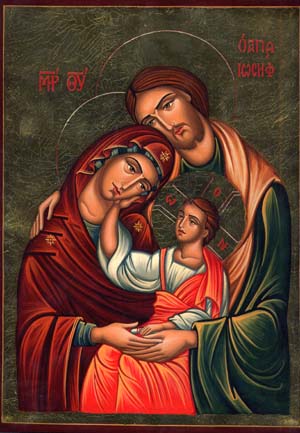
My Wife’s Exercise of the Priesthood in Our Home (or Response to Alison part III) Here a people of godly race are born for heaven; the Spirit gives them life in the fertile waters. The Church-Mother, in these waves, bears her children like virginal fruit she has conceived by the Holy Spirit.[1] I love this inscription. For me, it makes of baptism the center of a multi-axes union of male and female, convert and community, earth and heaven – reminiscent of our earlier discussions, and a perfect preamble to this one. (Actually, the preamble’s going to on for a while… Read More
-
•
•
42 responses
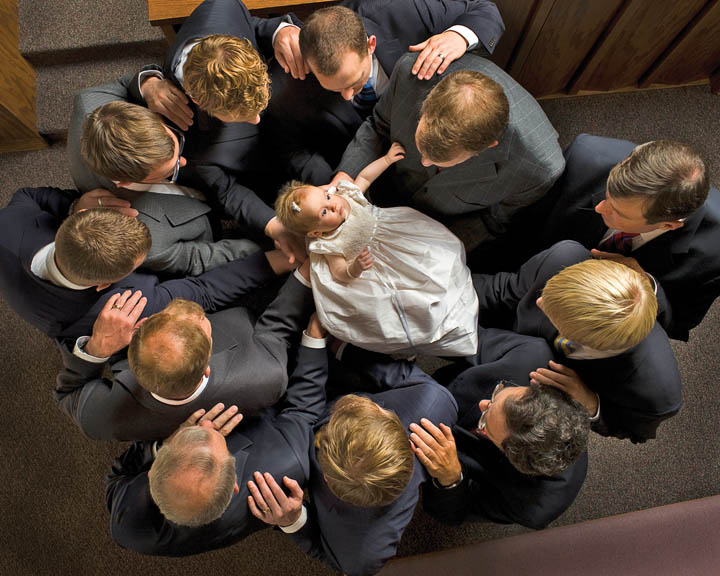
Why is it that when blessing infants men always bounce the baby up and down? If you’ve seen many baby blessings, you know what I mean. The father or whoever will pronounce the blessing holds the infant on its back in his outstretched hands while the rest of those invited to participate circle the child, adding their outstretched hands underneath the baby. Often before the blessing even begins and without regard to whether or not the child has uttered the merest hint of a whimper, the men slowly rock the baby up and down, usually gently. Read More
-
•
•
23 responses
Saturday night, several talks of the General Relief Society Broadcast addressed charity. I was left with the general impression that we should want to cultivate feelings of charity towards others, and that as we desire to have charity, we will gain it. I carry a sketch book and pencils with me. An adult only church meeting like the Relief Society broadcast is the perfect place for me to sit quietly and sketch portraits of the people around me. I like to study faces and postures, to see the effects of life written on the body. I like to look beyond… Read More
-
•
•
18 responses
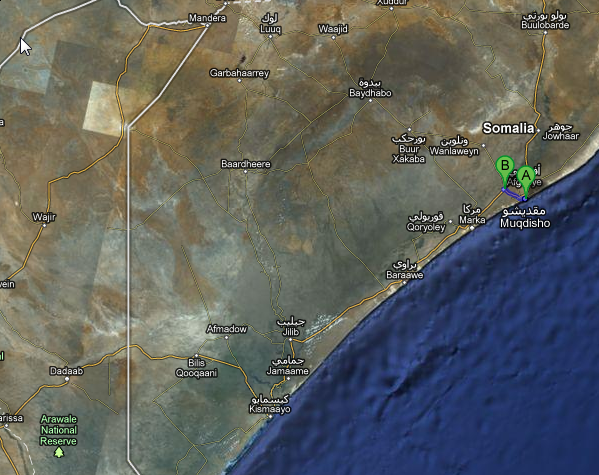
Once upon a time there was a boy named Ghedi. Ghedi has a little brother named Korfa. Ghedi and Korfa are best friends. They live in Mogadishu, in apartment #214, between the Suuqa Bakaaraha and the high school, just across from the Catholic school. Korfa likes to watch Sesame Street with Ghedi. Their mom and dad teach them that it’s important to learn English. Ghedi is 13, and Sesame Street is easy for him. Korfa is 5. Ghedi helps him with the hard words. After Sesame Street, Ghedi usually goes down to the quad to hang out with his friends,… Read More
-
•
•
14 responses

One of the gloriously enriching experiences in marriage – at least in my marriage – is all of the truly wonderful people that my wife has brought into my life. One of these persons is Sarah Bringhurst Familia – a brilliant, homeschooling mother, who also happens to be a pillar of global citizenship. Since marrying, she and her husband have lived in a number of exotic locations, including Utah, California, The Philippines, Ireland, Italy, and most recently Tunisia. With both a degree and lots of life experience centering around the Middle East, she’s a trenchant observer of current affairs in… Read More
-
•
•
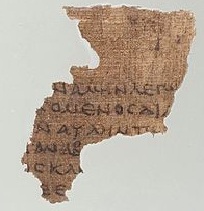
I will focus these study notes on Acts 21:1-Acts 23:11. As you read this story of Paul, notice that the Church of his time has spread to many communities. Paul is able to move from place to place, at least in the general area of Palestine and parts of Asia Minor (now western Turkey), and to depend on local branches of the Church as he does so. For example, in verses 3-7 we see him visit the branches at Tyre, Ptolemais, and Caesarea. Clearly the early Church grew rapidly after the Day of Pentecost, roughly thirty years before the story… Read More
-
•
•
9 responses
We’re happy to introduce Rachel Whipple as our latest guest blogger. Rachel got her bachelor’s in geology (and a husband) at BYU. She lived in San Diego and on the North Shore of Long Island before returning to Provo. Now that her husband teaches at BYU, she gets to take all the classes that she wanted to take as an undergrad, but couldn’t fit into her schedule. (So far, that’s been mostly philosophy and anthropology courses, because what could be more fun than spending a semester reading David Hume?) She has been a stay at home mom for a decade,… Read More
-
•
•
110 responses
Wheat & Tares ran a fun post earlier this week titled LDS Men Are Incredible … although the URL string shows that the original draft title of the post was “Why Men Suck.” That kind of marks off the two ends of the spectrum, doesn’t it? That’s a nice lead-in for the question: What remarks are going to be directed at LDS men in next week’s General Conference? Read More
-
•
•
33 responses

A comically involved, complicated invention, laboriously contrived to perform a simple operation. —“Rube Goldberg,” Webster’s New World Dictionary Read More
-
•
•
78 responses
I was surprised a week ago when a senior missionary serving in our ward said that the Church is struggling to get senior missionaries, something that an article in the Deseret News last week confirmed. But my senior missionary friend went further than the article did, saying that the number of senior missionaries has declined by 40% in the past decade. Read More
-
•
•
32 responses
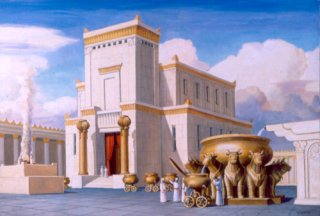
Even though it comes first in the Bible, Genesis 1 represents the youngest of three Israelite creation traditions. As happens in culture and even inspired religion, traditions of the past were once again adapted and (re)appropriated to meet the needs of the time. Genesis 1-2:4 is generally believed to have come from a priestly tradition associated with the tabernacle/temple, and received its current form sometime around the Babylonian exile (which explains some of its anti-Babylonian polemics, which go totally unnoticed by modern readers.) Several characteristics of Genesis 1-2:4a suggest priestly and temple associations, but the most important for our purposes… Read More
-
•
•
27 responses

I thought a good companion to Jonathan’s recent post would be a list of quotations by church authorities on Heavenly Mother found in Paulsen’s & Pulido’s recent BYU studies article, “A Mother There.” I do not list them in the same order as they’re found in the article, nor do I list all of the quotations found in their article (not to mention the hundreds more that they’ve accumulated) – but let me be clear about the fact that I’ve culled them directly from the article. The quotes themselves are clearly in the public domain, but it still feels a… Read More
-
•
•
66 responses

It’s late September and LDS high school students really should be back at school … and back at seminary. This year’s course of study is the Old Testament, which covers (or has already covered) Genesis 1 and the Creation. I hope LDS seminary teachers can teach Creation without teaching Creationism. But I fear some LDS teachers won’t or can’t make that distinction, so it is likely some LDS seminary students are going to go home this week thinking Creationism is the LDS view about Creation. That is very sad and sets up LDS kids to have a bad experience when… Read More
-
•
•
35 responses
David Paulsen and Martin Pulido’s survey of statements concerning Heavenly Mother in Mormon thought, recently published in BYU Studies, has earned a good amount of attention. It’s a thorough survey, and I only have two relatively minor criticisms. In addition, the article restricts itself to surveying statements rather than analyzing them, and I see a few possibilities for future analysis. Mostly I want to make a couple observations about the article, primarily that it doesn’t say quite as much as one might think. Read More
-
•
•
172 responses
As I mention in my companion post, recent news stories have disagreed about the idea that LDS views on homosexuality are evolving. The history of LDS views on homosexuality is complicated, and I can’t fully do it justice in a relatively short post, but I’ll at least try to hit the highlights. Here’s a sketch of some of the ways in which LDS views on homosexuality have changed over the past 50 years — in very positive ways, I believe.[1] Church views have changed substantially regarding causes of homosexuality. In 1969, then-apostle and future prophet Spencer W. Kimball published The… Read More
-
•
•
56 responses
Media sources including the LDS Newsroom have recently engaged in or supported an unfortunate attack on LDS writer Joanna Brooks. Brooks, a professor at San Diego State University, wrote at Religion Dispatches last month about Mitch Mayne: In LDS communities, where lay congregational leaders have positions analogous to those of priests, pastors, and rabbis, news of Mayne’s calling is having an impact, revealing continuing divisions among Mormons and questions about evolving Mormon views on homosexuality. There is, in fact, no consensus Mormon view on homosexuality. While most Mormons view homosexual sexual activity as a sin, Church leaders have expressed divergent… Read More
-
•
•
50 responses
In the comments to Pres. Monson’s article on the Washington Post’s On Faith blog one Church member claimed that “Not one single LDS employee working in the Twin Towers was at work that morning.” This is, of course, incorrect. In fact, one of the LDS employees working in the towers died in the attack, as did two more on planes and two in the Pentagon. Read More
-
•
•
23 responses

Communication is not just about words, but the context, culture and worldview in which they are embedded.1 A simple translation of words will fail to communicate the entire message, because it doesn’t include this information. The complexities of communication are manifest in obvious and less obvious ways; sometimes we know what we’re missing, and sometimes we don’t. Here are some examples. Teenagers can carry on entire conversations at the dinner table or on Facebook by quoting movies their parents haven’t seen. If it goes far enough, the parents realize that something beyond the actual spoken words is being communicated. They… Read More

